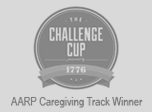Simple Self-Care Tips For Family Caregivers
Acting as the primary caregiver for a loved one or family member can be emotionally and physically taxing. It is not uncommon for you to feel as though your own well-being has fallen to the wayside as you prioritize the care of your loved one and navigate additional stressors such as financial problems, social isolation, and family conflict. This may lead to caregiver burnout and further deteriorate your ability to care for your loved one.
However, your health and the health of the person you are caring for are not mutually exclusive. Instead, taking care of yourself is one of the most important things you can do while acting as a family caregiver. Here are some simple self-care tips to cultivate your emotional and physical wellbeing while caring for a loved one:
Understand How Stress Affects You
One of the first things you can do to care for yourself is to focus on understanding when and how stress affects you personally. Challenging emotions emerge for all of us in unique ways. According to the National Alliance on Mental Illness (NAMI), some of the most common physical symptoms of stress are headaches; fatigue and low energy; diarrhea, constipation, and nausea; muscle aches; and insomnia. The varied manifestation of symptoms, as well as the diverse personal triggers that you may experience, mean that it is important to take note of how you as an individual experience stress in order to respond to it in a productive way.
Practicing mindfulness is one option for self-reflection. Mindfulness can be as simple as acknowledging where you are and how you feel when you notice symptoms take hold. Keeping a journal to describe what you were doing when you began to feel particularly overwhelmed is one way you can be mindful of your emotional wellbeing in order to understand how to best avoid and deal with triggers.
Maintain Social Connection and Build Support Networks
Caregivers of older adults are prone to feelings of social isolation and loneliness. One study by Aging Innov journal showed that 44% of caregivers were socially isolated according to the Berkman-Syme Social Index, which measures social connection. It can be difficult to find time for social activities with friends and family when caregiving responsibilities can feel constant. However, social connection can be one of the most important tools to combat burnout and depression for caregivers, so finding a social support network is essential for your self-care.
You can keep a schedule in which you reserve a period of time every day to talk to someone outside of your household, or find a consistent routine– perhaps a weekly lunch with a friend or daily walk with your neighbor– to maintain your connections. Additionally, many caregivers may feel like their friends or families do not understand what they are going through or the burdens of caregiving. There are local caregiver support groups available where you can meet people who are having similar experiences and help develop a sense of self-compassion. Your local hospital may be able to connect you with these organizations and support groups. Many programs also include services such as transportation, housekeeping, and meal delivery.
Self-Care With Your Family Member
Self-care does not mean you have to cultivate it entirely on your own. Including the person you are caring for in your self-care routine can have an immeasurable positive impact on both of you. The AARP suggests finding activities that you both enjoy in order to boost your mood and outlook on the day. By finding time to pursue happiness together, the caregiving itself does not take over your entire relationship with your loved one.
One idea of a quick self-care activity to try out together is playing music that you both enjoy and singing along throughout the day, an easy tweak that is proven to improve happiness. Another possibility is taking at least an hour each day to watch something you both are interested in and turn off the news or take a break from health-centered conversations. Finally, elevating your senses also lifts your spirits. Setting up a diffuser and picking a calming scent each day is a simple way to include your family member in your self-care and help both of you build autonomy in your spaces.
Meditation, Yoga, and Breathing Exercises
Relaxation is a great way to practice self-care. For instance, relaxation-based practices such as meditation, yoga, mindfulness, and breathing exercises have all been proven to reduce stress and improve quality of life for family caregivers by cultivating a strong mind-body connection. One study examined the relationship between mediation and yoga and self-compassion and quality of life for family caregivers of Alzheimer’s patients over an 8-week period. The results showed a significant increase in attention, quality of life, and self-compassion scores in the group that participated in yoga and meditation. Harvard Medical School suggests some resources for guided meditations and yoga that include: The Harvard Medical School Guide to Yoga, UCLA Mindfulness Awareness Research Center, and online apps such as Headspace.
Similarly, the AARP notes that the science of breathing has been shown to improve wellness. Try starting with a slow inhale to the count of four followed by a slow exhale to the count of four and repeating the exercise three times. This helps significantly calm the nervous system. Repeat the pattern as often as you need until you feel your nerves ease.
Take Care of Your Body
Taking care of your physical health is just as important to self-care as mental healthcare. NAMI recommends exercising daily for at least 20 minutes; eating a diet full of fruits, vegetables, and unprocessed grains; and avoiding alcohol and drugs to help your body feel its best each day. Additionally, getting enough sleep – between seven and nine hours for an adult – and developing a good routine before bed, such as avoiding laptop, phone, and television screens, can help maintain good “sleep hygiene.” After a good night’s sleep, the AARP suggests drinking a full glass of water, especially with lemon, to boost vitamin C, first thing in the morning in order to start the day off well-hydrated.
Although you are acting as the caretaker, your physical health should continue to be a priority. Seeing your doctor on a regular basis is key to self-care.
Asking for Help
Finally, never be afraid to ask for help. Reaching out to your personal network of friends and family is a good option. Try asking for specific things you need, such as a home-cooked meal or a short visit.
There are also plenty of resources that support family caregivers. SeniorHabitat is a free digital platform that makes it easy for family caregivers and care providers to work together. The platform and tools address the unique clinical, social and financial needs of older adults. They make critical care connections to fully support the aging journey. Whether you are looking for Aging In Place solutions or Senior Housing, they have the tools to help you make the right decisions.
Should you need help paying for long-term care, there are also various options and organizations providing support for family caregivers. Check out this list of resources from the National Institute of Health that can help pay for those services.














